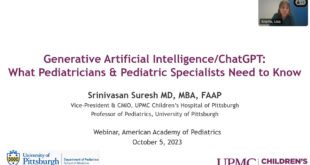Raising Awareness on Non-Invasive Fibroid Treatments in Nigeria
Women in Nigeria who are diagnosed with fibroids and adenomyosis are being encouraged to seek out modern medical solutions rather than suffer in silence. Experts emphasize the importance of leveraging advanced technologies like high-intensity focused ultrasound (HIFU) that are now available in the country.
Dr. Abayomi Ajayi, CEO of the Fibroid Care Centre in Lagos, highlighted this during a special event titled “Fighting Fibroids: The Non-invasive Procedure.” The event was organized by the Sanitary Pad Media Campaign in partnership with the Fibroid Care Centre. Ajayi emphasized that HIFU is a groundbreaking non-invasive treatment option that uses focused ultrasound waves to target and destroy fibroids without the need for open surgery, hospital admission, or blood transfusions.
Ajayi explained that the global shift from invasive to non-invasive treatments has been driven by several factors. He cited data from France, where 20 out of 100,000 people undergoing fibroid surgery died, particularly after hysterectomies. Additionally, 2,000 out of 100,000 experienced complications such as fever, blood transfusion needs, and deep vein thrombosis (DVT). By adopting non-invasive methods like HIFU, these risks can be significantly reduced.
“With HIFU, there is no risk of blood loss, damage to organs, or tissue,” Ajayi said. “It preserves fertility, allowing women to conceive and have normal pregnancies after treatment. The procedure eliminates almost all the risks associated with traditional surgery because it doesn’t involve cutting, anaesthesia, or significant complications when performed correctly.”
He also noted that the recurrence rate of fibroids after surgery is higher compared to HIFU. Even if fibroids return, another HIFU session is a safer alternative than undergoing another surgery.
Ajayi stressed that while HIFU is an excellent option, it is not the only choice. “We are not saying everyone should opt for HIFU. What we’re trying to do is encourage women to explore all available options and make informed decisions based on their specific conditions, such as the type and location of fibroids, weight, and medical history.”
Breaking the Silence Around Menstrual Health
Anike Funke-Treasure, convener of the Sanitary Pad Media Campaign, emphasized the importance of open discussions about menstrual health. She pointed out that for too long, women have remained silent about their experiences due to stigma and shame surrounding menstruation.
“We don’t want this silence to prevent women from accessing treatment or gaining proper knowledge about their condition,” she said. “Many women face challenges in leading a fulfilling life because they feel ashamed or isolated. It’s time to break the silence and provide accurate information.”
Funke-Treasure also highlighted the impact of hysterectomies on women with fibroids. She described the emotional and physical trauma many women experience after undergoing this surgical procedure. “Many women are unaware of non-invasive alternatives like HIFU, which can offer relief without the risks associated with surgery.”
She called for greater awareness and education around fibroid treatment options. “It’s essential that women understand their choices so they can make decisions that align with their health and well-being.”
The Future of Fibroid Treatment
As medical technology continues to evolve, non-invasive procedures like HIFU are becoming increasingly viable for treating fibroids. These innovations not only reduce the risks associated with traditional surgeries but also offer a more patient-friendly approach.
Experts like Dr. Ajayi and advocates like Anike Funke-Treasure are working to ensure that women in Nigeria are informed about these advancements. By promoting open dialogue and access to information, they hope to empower women to take control of their health and avoid unnecessary suffering.
The collaboration between the Sanitary Pad Media Campaign and the Fibroid Care Centre represents a growing movement to address menstrual health issues and challenge the stigma that has kept many women from seeking help. With continued efforts, more women may soon benefit from safe, effective, and non-invasive fibroid treatments.
 Info Malang Raya Its All About World News
Info Malang Raya Its All About World News



